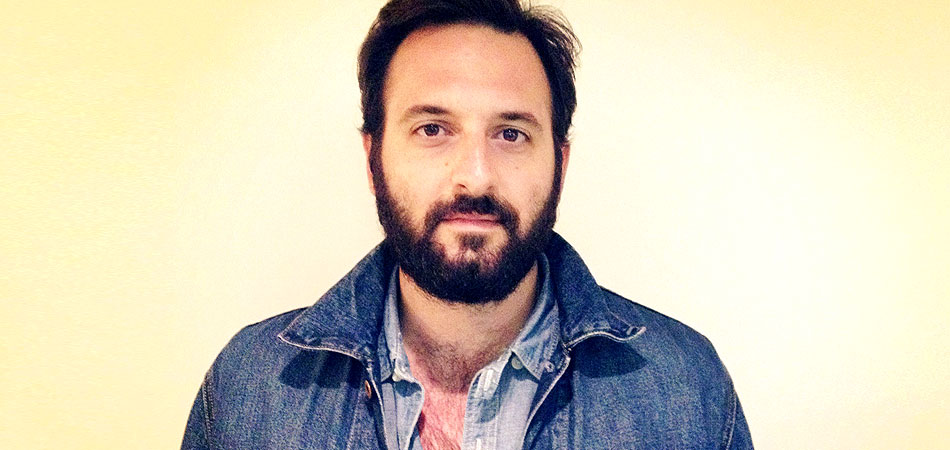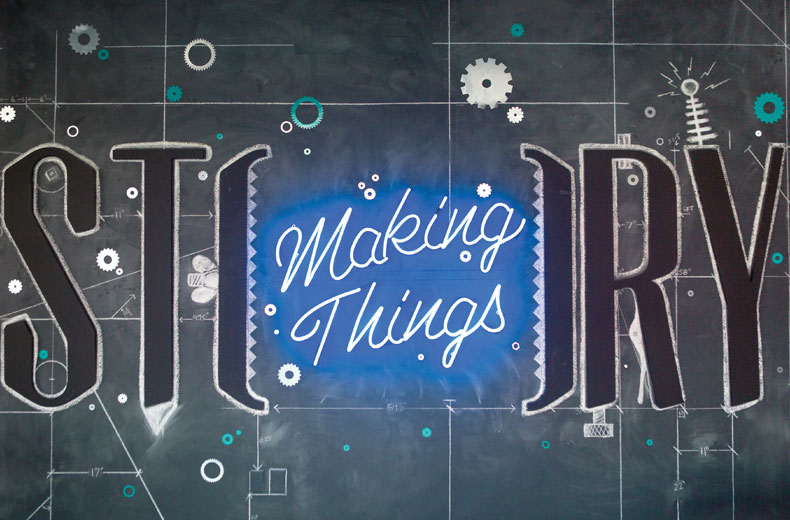
How can brands use music to overcome generational tensions?
Joanna Barnett, Strategy Director at Truant, on the power of music to bring people closer together and broaden a brand’s appeal.
Founder and CEO of Sub Rosa


Career to date:
2009 – Sub Rosa (CEO)
Michael Ventura: At Sub Rosa, my role is primarily focused on creating and continuing to evolve the company’s vision and growth. Interacting with the team, our partners, and the world around us all help me to ensure that Sub Rosa continues to create an ecosystem where problems are solved and personal growth is achieved.
Michael Ventura: I started the first version of what Sub Rosa would become when I was 23. At that young age, I had very little practical work experience but I had a strong will and a commitment to create something great that overwhelmed any hesitations I might have felt about starting my own company. Looking back over the last decade, I find insights in so many moments from our company’s past. Probably the most unique and rarefied to me is that all of my professional history sits within one entity. All of my professional mistakes and successes sit within these walls. It’s a special thing to know that the vast majority of your career’s growth can be contained in a singular organization.
Michael Ventura: Sub Rosa was started amidst the bubble-burst of 2003. It was a time when the limitations and grandeur of digital were still in flux. Brands needed to understand themselves and their audiences in a different way. They needed empathy. This is what Sub Rosa was founded upon. An idea that brands needed to learn how to behave more like good humans – participatory, empathic, conversant, and dynamic. This, coupled with an ability to make strategic recommendations AND act upon them with a full-service set of design capabilities have made us a compelling partner to many clients.
“Nature, contemplation, writing, or simply walking the dog – these “in-between” moments are actually “the” moment and where inspiration often sits waiting for discovery.”
Michael Ventura: We’ve recently made a few new hires here at Sub Rosa who have brought new perspectives into the organization that have gotten the company excited about the path ahead. Academics, researchers, organizational change-makers, multimedia artists – these folks have often had a hard time finding a home within traditional agencies. Sub Rosa is different. It thrives on these types of thinkers and makers and helps us continue to evolve and differentiate our practice.

Michael Ventura: While I am immensely proud of the work our team has done for our clients in the past year, to be honest, the work I am most proud of is the work we’ve done for ourselves. We have dedicated ourselves to “being our own best client” and focusing thoughtful, intentional time each day on working on ourselves. For some, this might mean exploring their own work/life balance, for others it was helping to improve our efficiencies in getting to solutions or publicizing our own work to the world. The “cobbler’s kids have no shoes” adage was true of Sub Rosa for a long while but with newfound dedication and commitment to our own brand, we’re seeing marked growth and improvement on the path to being our best self.
Michael Ventura: I’m not really interested in the work that most people see in the awards shows. The work I’m most intrigued by is the stuff we don’t really see. Organizations who have looked inward at what was/wasn’t working for them and set out to fix it. Companies like GE who have taken an “always on” approach to communications that help them reach people in new and different channels each day. Publications like WIRED who have taken a brand new view on what a publishing company should be in 2015 and challenged convention. These audacious bets on the future and how responsive companies need to behave in order to be successful – those are the pieces of work that matter most to me.

Michael Ventura: My wife is a constant fountain of inspiration. She’s effortlessly creative and so light-touch with the things she does – yet they have such resounding impact. In addition to her, I find inspiration in the quiet moments where I can remain clear and present. Nature, contemplation, writing, or simply walking the dog – these “in-between” moments are actually “the” moment and where inspiration often sits waiting for discovery.
Michael Ventura: The standard trade pubs keep me in-touch with the work and the news enough, though frankly, it is the unlikely outlets – smaller blogs, indie publications, and getting out there and talking to people one-on-one that is the most relevant to me.
Michael Ventura: I really like some of the work coming out of MIT’s Media Lab of late. Their ability to continually challenge convention and push the limits of where innovation, design, and technology will converge is something to keep your eye on.
Michael Ventura: Playing well in the sandbox. Most clients don’t want the one-stop-AOR-shop anymore. Increasingly, they are looking for a few key players to each take a strong position on a portion of their business and work together to create a sustainable team of equals. Speaking autobiographically, this is easier said than done at times and it takes the right type of client leadership, along with the rapport and candor one would expect from good partners to make it work. Many clients have called upon us in recent years to liaise between various partners and be the “mortar” that holds all the bricks in place. I tend to think this type of work will become more and more important as brands get increasingly diverse teams around the table.
“We in large part do not participate in traditional competitive RFPs. It’s not to be stand-offish or haughty–it’s simply because they aren’t the best way of evaluating partnership.”
Michael Ventura: Paid, earned, owned and shared channel thinking is going to remain important, but beyond that, it will be equally important for brands to strike the right balance of creation, curation, and facilitation of their efforts. Everything an organization does can be viewed as media and as such, each will require the right calibration to ensure success.
Michael Ventura: We in large part do not participate in traditional competitive RFPs. It’s not to be stand-offish or haughty–it’s simply because they aren’t the best way of evaluating partnership. The traditional approach belies the way real, effective work comes to life. Chemistry, collaboration, and planning are really the hallmarks of great work in our practice. As such, 2 weeks of immersive, integrated work with potential clients that give us a sense check on these attributes are much more effective than the shot-in-the-dark pitch process.
Michael Ventura: The ones where we’ve successfully convinced clients that conducting a pitch isn’t the right thing to do. In retrospect, every client who has abandoned their RFP for our alternative exploratory approach has appreciated the change of pace and the new outlook on evaluating teams.
“Brands needed to understand themselves and their audiences in a different way. They needed empathy. This is what Sub Rosa was founded upon. An idea that brands needed to learn how to behave more like good humans – participatory, empathic, conversant, and dynamic.”
Michael Ventura: We as an industry – both as clients and firms – have the responsibility to try as best we can to make work that isn’t simply shilling the next / newest / or otherwise improved version of the last thing. How can we use our know-how and capabilities to improve the lives of our consumers or communities? How can we create work that has a triple bottom line approach imbued within it? How can we not simply pursue Cannes Lions, but lasting change and effective work that creates profitable, successful, and conscious work in the world? These are the questions we should be asking more of our clients and ourselves.
Michael Ventura: Tomorrow.
Looks like you need to create a Creativebrief account to perform this action.
Create account Sign inLooks like you need to create a Creativebrief account to perform this action.
Create account Sign in